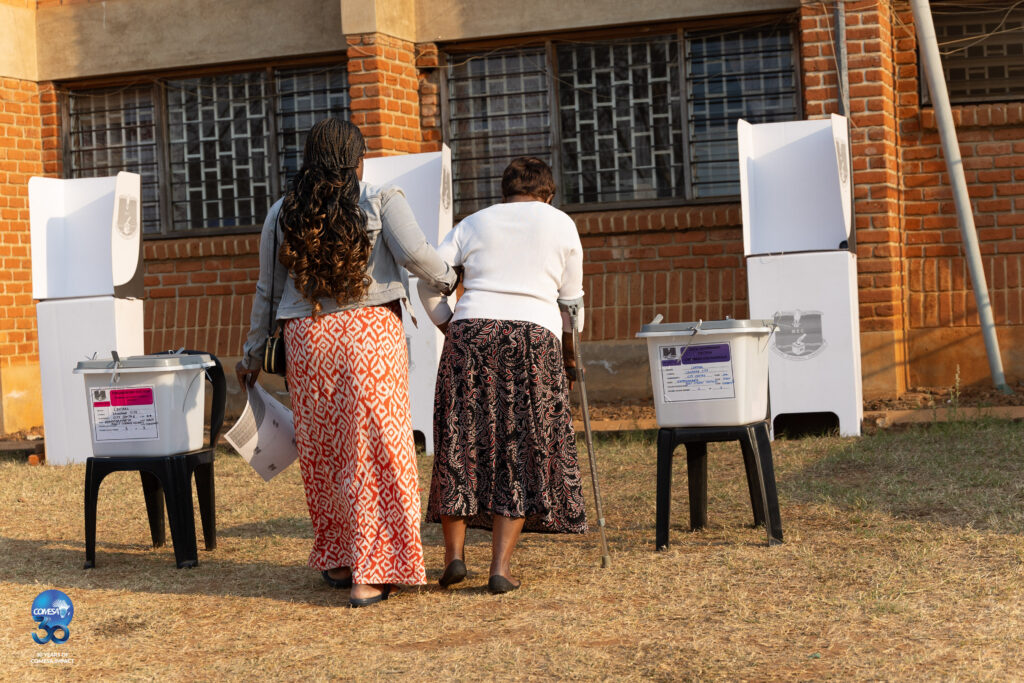
The Joint African Union- COMESA Election Observation Mission (AU – COMESA EOM) to the September 16 General Elections in Malawi has commended the country for conducting a peaceful and orderly election. The orderliness is attributed to the reforms undertaken since 2019 and enhanced logistical readiness and inclusivity measures by the Malawi Electoral Commission (MEC).
This is contained in the Preliminary Statement issued on Thursday 18 September 2025 in Lilongwe. It was read out by Leader of the AU-COMESA EOM H.E Hailemariam Desalegn BOSHE, former Prime Minister of Ethiopia. The Mission Leader was assisted by Amb. Ashraf Rashed, Chair of the COMESA Committee of Elders.
“This largely reflects Malawi’s continued commitment to democratic consolidation compliance with many international election principles and MEC procedures,” fmr PM Desalegn said.
In support of Malawi’s objective to further strengthen its electoral process, the AU-COMESA EOM has made preliminary recommendations to various stakeholders including the government and legislators, the MEC, Civil Society Organisations, political parties and the media.
The government and legislators have been urged to introduce legislated gender quotas or temporary special measures to guarantee a minimum threshold of women, youth and persons with disabilities’ representation in Parliament and local councils in line with regional and international standards.
To the Malawi Electoral Commission, they should introduce electoral technology in the election management processes, invest time and resources in extensive voter and stakeholder awareness. These should include clear explanations of the purpose of the tools and their limitations. Conduct broad stakeholder consultations and awareness campaigns to explain the purpose, use and limitations of electoral technologies to build public trust.
Political Parties have been urged to adopt binding internal rules for gender-balanced primaries, transparent candidate selection and zero-tolerance for intimidation. Commit to supporting women, youth, and persons with disabilities in leadership roles through mentorship, financial backing, and fair access to campaign platforms. Civil Society Organisations, should continue to advocate for women’s rights and gender equality, including lobbying for legal reforms and providing practical support (training, advocacy, solidarity campaigns) to female candidates.
To the Media, they should ensure balanced and impartial coverage by giving fair airtime to all candidates and parties, including women, youth and PWDs, develop editorial guidelines and ethical standards that safeguard against disinformation, partisan bias and unfair access linked to financial advantage.
Get the full statement https://qr.scan.page/uploads/pdf/Mk1dIx_9e2a6b8a7913b9ca.pdf

